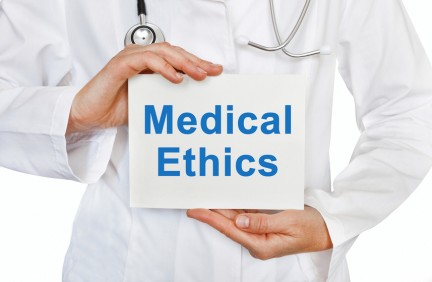The National Review has a response to my piece in TIME, Not Discussing Down Syndrome Complications is Unethical and, as might have been expected, it utterly misses the point.
Writing about a woman who felt her doctor was pressuring her into termination of her Down Syndrome baby because he mentioned the option more than once, I noted:
[pullquote align=”right” cite=”” link=”” color=”” class=”” size=””]Her baby, her body, her choice — whether we are talking about abortion or about breastfeeding.[/pullquote]
… [G]ood medical care always requires providing complete and accurate information—not merely the information that a patient wishes to hear.
In response, Matthew Hennessey complains about Doctors’ Double Standard on Complete and Accurate Information:
Amy Tuteur, an obstetrician-gynecologist, also took issue with Baker’s letter. Writing at Time.com, Tuteur said it would be unethical not to discuss possible medical treatments (i.e., abortion) with a pregnant woman carrying a child with Down syndrome — even if, like Baker and my wife, the patient had already said she wasn’t interested in “terminating” her pregnancy…
That got me thinking: How far should a doctor go when providing “information” about odds-based medical and social outcomes to an expectant mother? Life is risky. Life is dangerous. There’s a lot that can go wrong. Should a doctor list all that stuff out at baby’s first ultrasound? A 2003 study published in The Lancet found that children who grow up with one parent are at increased risks of psychiatric disease, suicide, and addiction. Maybe physicians like Tuteur should impress on their unmarried pregnant patients the risks to their quality of life should they decide to “continue with the pregnancy.”
How far should a doctor go? Far enough to provide all the information relevant to making the medical decision at hand:
What are the chances that a Down Syndrome child will be intellectually compromised? 100%.
What are the chances that a Down Syndrome child with have a congenital heart defect? Approximately 50%.
What are the chances that a child in a one parent family will develop psychiatric disease? Nowhere close to either of these two salient facts about Down Syndrome.
Hennessey illustrates the problem of starting with the conclusion and attempting to reason backward. It is incompatible with medical ethics which starts with principles (autonomy, justice, beneficence and non-maleficence) and leaves all possible conclusions open. In addition, starting with a predetermined conclusion often leads to tortured logic and intellectual incoherence. In particular, it often leads to censorship, muzzling health providers to prevent them from giving accurate information so as advantage the pre-determined conclusion.
Hennessey wants to muzzle providers so they cannot provide women with the facts about Down Syndrome. He believes that the ends, preventing abortion of Down Syndrome children, justifies violating ethical principles.
I suspect that most people working in obstetrics and pediatrics recognize just how unethical such “counseling” would be.
But there is another, equally unethical counseling program that enjoys wide favor among obstetricians and pediatricians. It’s call The Baby Friendly Hospital Initiative.
It starts with the conclusion that all babies and all mothers benefit from breastfeeding and that the benefits are so large that they justify violating the ethical principle of medical autonomy. The truth is that the benefits of breastfeeding in industrialized countries are trivial. There is no evidence that breastfeeding rates have any impact on population based health parameters like term infant mortality or life expectancy. Breastfeeding can be lifesaving for preemies, but the majority of babies are not born prematurely. So the purported empirical justification for the violations of medical autonomy simply don’t exist.
Even if they did exist, the central “steps” of The Baby Friendly Hospital Initiative would still be unethical. It is UNETHICAL to muzzle healthcare providers, whether the issue is abortion or breastfeeding. It is UNETHICAL to attempt to manipulate a patient’s choices, whether that means mandating vaginal ultrasounds for women who want terminations, or locking up infant formula and forcing women to sign consent forms acknowledging the “risks” of formula feeding. It is UNETHICAL (and unscientific) to ban formula supplementation or pacifiers.
In medicine, the ends do not justify the means. Sure we could save lives if we forced people to donate kidneys, but that’s unethical since the most fundamental medical right is the right to bodily autonomy. In medical ethics, we reason FROM principles, not TO predetermined conclusions.
Mr. Hennessey fails to understand that, but he’s just one individual attempting to convince others to make the same choice that he made.
The ethical failure that is The Baby Friendly Hospital Initiative is far more egregious. It is an effort by healthcare professionals to ignore women’s bodily autonomy while insisting that the ends justify the means. They never do.
Her baby, her body, her choice — whether we are talking about abortion or about breastfeeding.


